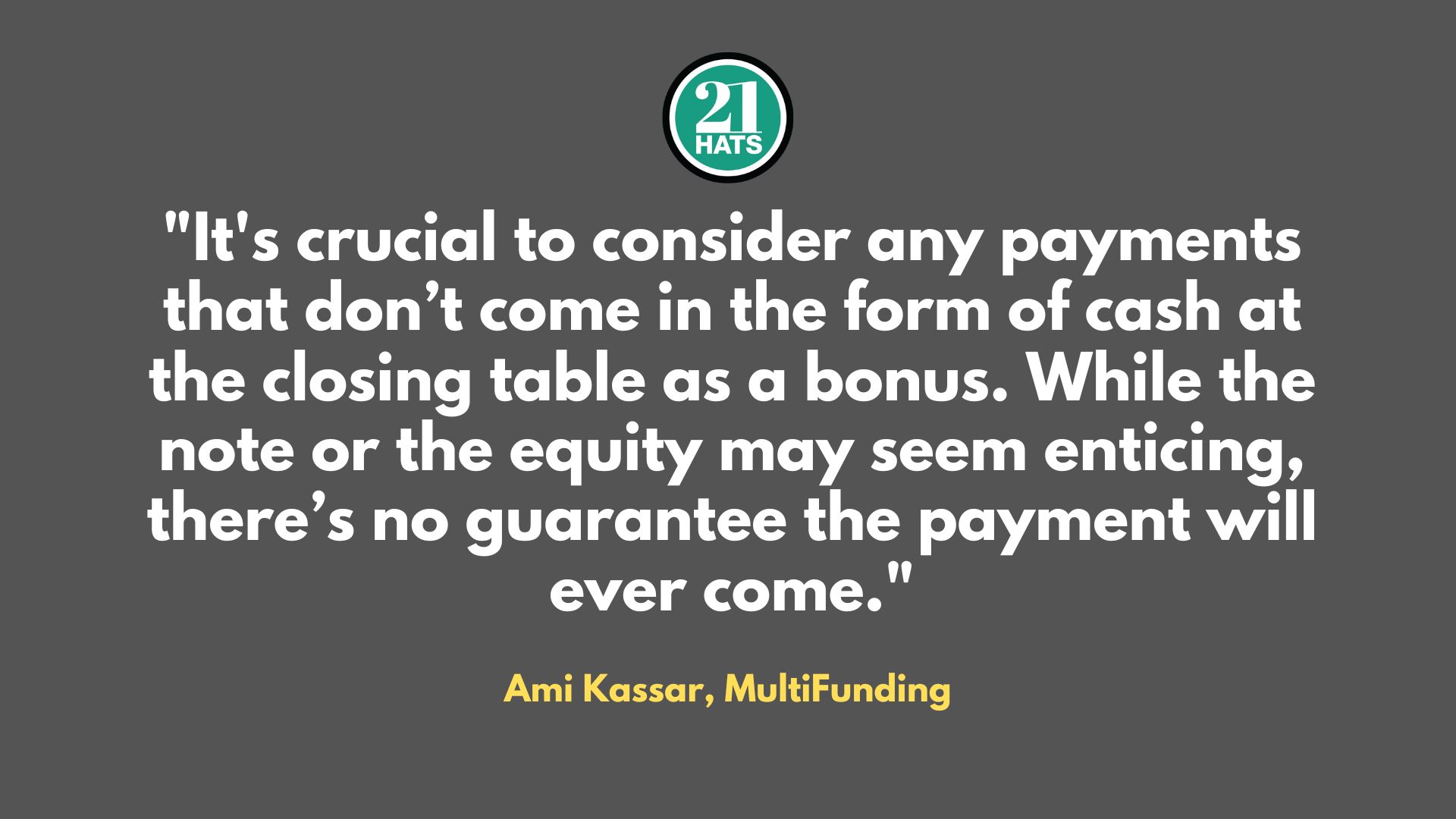Structuring a Sales Agreement For Your Business

There’s a lot to think about before you get to the closing table.
By Ami Kassar
In my last column, I started a series about selling your business. Today, I want to focus on how the payment will be structured. Once parties agree on a price, the next step is deciding how and when it will be paid.
My advice is simple yet crucial. Before embarking on the journey of selling your company, it’s essential to be crystal clear about your cash needs at the closing table. As you calculate this number, it’s highly recommended that you work closely with your trusted accountants and financial advisors. Their expertise will help you understand what you can expect to take home after taxes and assist you in planning for your retirement needs, providing you with a sense of reassurance and guidance.
The buyers will likely push you for all kinds of concessions to try and pay as little cash upfront and as much as possible on the back end. As you go back and forth in this process, you will ultimately have to decide if the upfront consideration is enough for you.
What are some of the tricks of the trade? For example, a buyer might want to carry a portion of the purchase price in a note payable over time. Another buyer might ask you to accept a performance-based earnout, which means your total payment for the business would depend on how it performs under the new owners. Others might try to tempt you to accept stock in their company instead of cash. Or perhaps the buyer is a private equity company that wants you to take some of your consideration in the form of equity in the larger entity they are trying to roll up.
This subsequent payday is often referred to as a second bite of the apple. But I think it’s crucial to consider any payments that don’t come in the form of cash at the closing table as a bonus. While the note or the equity may seem enticing, it’s important to remember that there is no guarantee the payment will ever come. When you sign the sales agreement, you relinquish control of your company and are now at the mercy of the new owners and their judgment. Or to be blunt, the new owners could mess up your company and the promised upside may never come—no fault of your own.
If you agree to accept some of the purchase price in a note that is paid over time, this loan will most likely be subordinated to the primary lender. So if the company gets into trouble, the primary lender’s rights will trump your rights. We have seen instances where these notes get extended or eventually forgiven because things change, and the company can’t afford to pay them.
If you are selling to a public company (or, in some cases, even a private one), they may try to offer you their stock instead of cash. Remember that there are no guarantees about the stock’s future performance, irrespective of how tempting the buyers make it sound.
Some suitors may be open to buying just a piece of your business, and if you give up control in the process, you need to accept that there will be a new boss in town. In one case, owners sold 60 percent of their company to private equity for cash and kept a 40-percent stake. Within thirty days of taking control, the private equity company had tripled the company’s payroll. And within five years, the company was bankrupt, and that 40-percent stake was no longer worth anything.
I am not trying to be a Debbie Downer. While we’ve all heard disaster stories, there are also plenty of transactions that turn into smashing successes. And while no one can predict which way your sale will go, I would certainly advise you to do whatever you can to protect yourself on the front end. This means being prepared for various scenarios and doing your best to structure your agreement to safeguard your interests so that you can still ride off into the sunset and be content with your results regardless of how things play out after the sale.
Ami Kassar is CEO of MultiFunding.